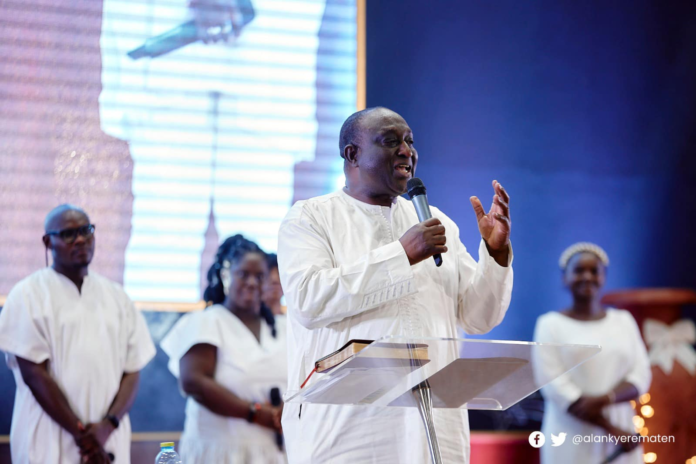Founder of the Movement for Change, Alan Kojo Kyerematen says Ghana’s economic problems will improve if corruption and its related practices are reduced by 10 per cent.
According to Mr Kyerematen, corruption accounts for Ghana’s indebtedness to the International Monetary Fund and its external creditors because a few individuals have amassed wealth to the detriment of the nation.
Speaking on JoyNews’ Newsfile on February 3, he said, “If we could just abate corruption by 10%, only by 10%, it will increase our economic performance by double of that, about 20%.”
He explained that, all sectors of the country are affected by corruption. For this reason, when given the political mandate, he will sign a citizen’s contract with the people of Ghana. In the contract, he will wage a relentless war against corruption.
Additionally, the former Trade and Industry Minister said his Great Transformational Programme (GTP) will tackle some of these issues.
He explained that the GTP consists of six clusters, including the economic cluster and constitutional reforms, among others.
The economic cluster will tackle matters of the economy and ways to improve it. The latter, constitutional reforms, will seek to improve the quality of our governance, addressing behavioral and attitudinal changes among citizens.
Again, he said Ghana has kept failing on the corruption index due to leadership and constitutional problems which his GTP will address.
“It is about leadership. Leadership by example. When we talk about leadership by example, it is not just about leadership as a president. It is about the president and the people around you. That is the leadership by example, collective leadership by example.”
“It’s about the transparency of our legal and regulatory regime. You see, if you have a public procurement law that in itself can create an incentive for corruption, then it means you have to fix the law.
“If you have regulations and laws that create incentives for corruption because they contain openings for corrupt practices, then you have to fix the law. So, it’s also about regulatory and legislative measures.
“It is also about institutional response. The institutions that have been established to fight corruption, and what is the level of resource allocation to them? Who are appointed into those institutions?” he added.
On January 30, Transparency International released the latest Corruption Perceptions Index, which ranks Ghana as 70th out of 180 countries in terms of corruption.
The country scored 43 out of a possible 100, which is the same score since 2020.
In Sub-Saharan Africa, Ghana scored better than 39 other countries, including Burkina Faso (41), South Africa (41), Côte d’Ivoire (40), Tanzania (40), and Lesotho (39).
ALSO READ:

